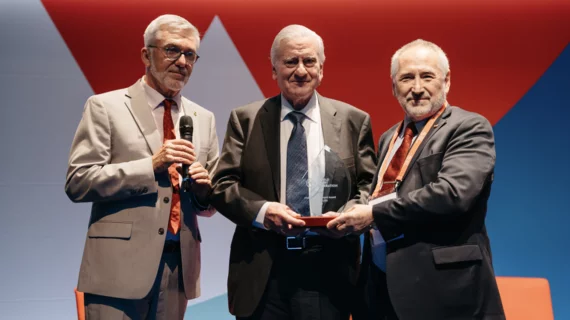World Heart Federation honors cardiologist Valentin Fuster for lifetime of service
Cardiologist Valentin Fuster, MD, PhD, received the World Heart Federation’s 2024 Lifetime Achievement Award Saturday, May 25, during the ninth annual World Heart Summit in Geneva, Switzerland.
Fuster, known as a leading voice in cardiac care for decades, currently serves as the president of Mount Sinai Heart and physician-in-chief of The Mount Sinai Hospital. Mount Sinai Heart, one of the world’s most prestigious medical facilities for cardiology and cardiac surgery, was even renamed Mount Sinai Fuster Heart Hospital last October to honor Fuster’s legacy.
“I am proud of this award, particularly because it represents Mount Sinai’s worldwide scientific contributions and dedication to advancements in the cardiovascular field,” Fuster said in a statement.
Fuster has held a long list of titles over the course of his career—including president of the World Heart Federation—and been recognized for his impact on cardiovascular health by many organizations, including the American Heart Association, the American College of Cardiology, the European Society of Cardiology and the Interamerican Society of Cardiology.
One of his biggest projects in recent years has been leading research into the safety and effectiveness of polypills that include three separate medications. The SECURE study, which included data from nearly 2,500 patients, found that taking polypills following a myocardial infarction (MI) was associated with a 24% lower risk of cardiovascular death, nonfatal MI, nonfatal stroke or emergency coronary revascularization compared to usual care.
The World Heart Federation is a global healthcare organization focused on reducing cardiovascular disease. It has relationships with medical societies and patient advocacy groups in more than 100 countries throughout the world. Click here for additional details on Fuster’s honor and other individuals who were celebrated by the World Heart Federation for going “above and beyond in their mission to fight cardiovascular disease and promote healthy hearts in their communities and beyond.”

